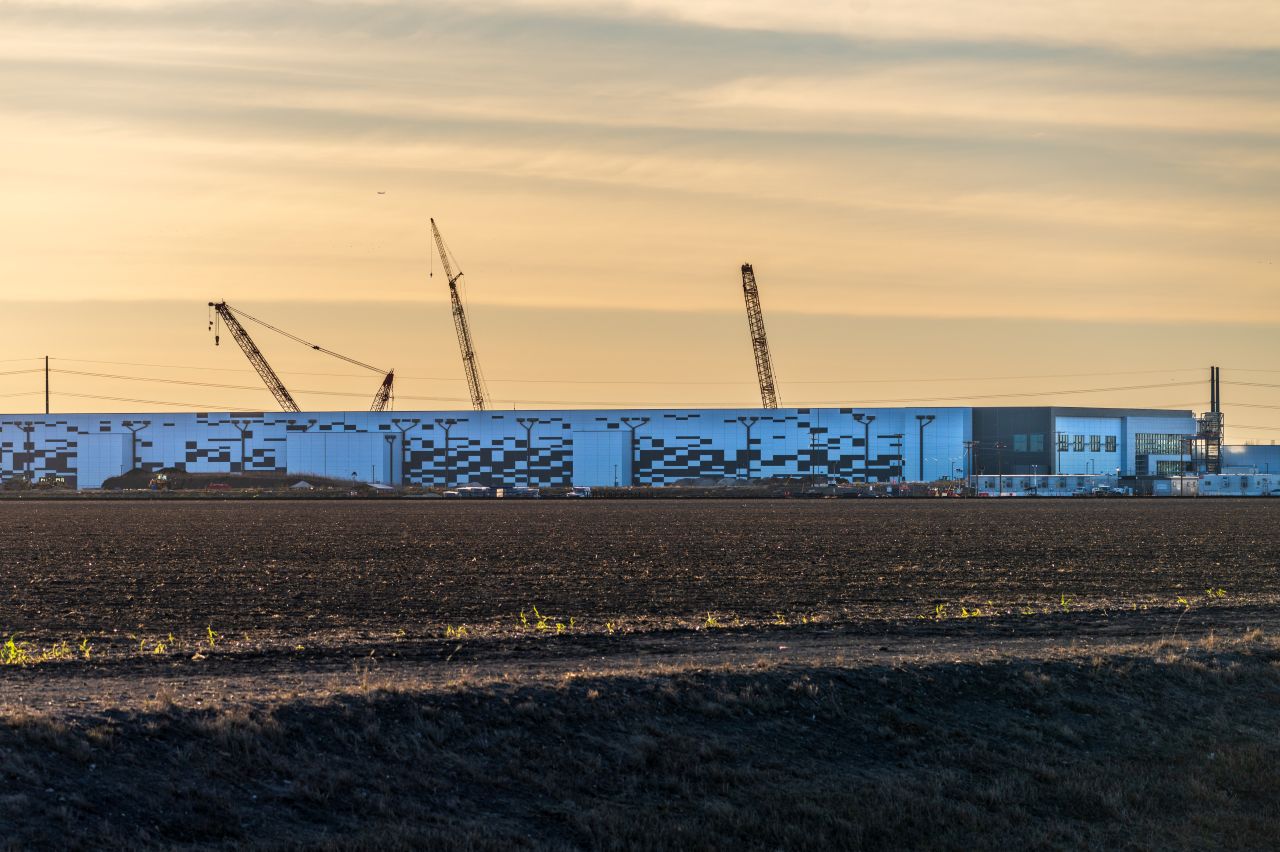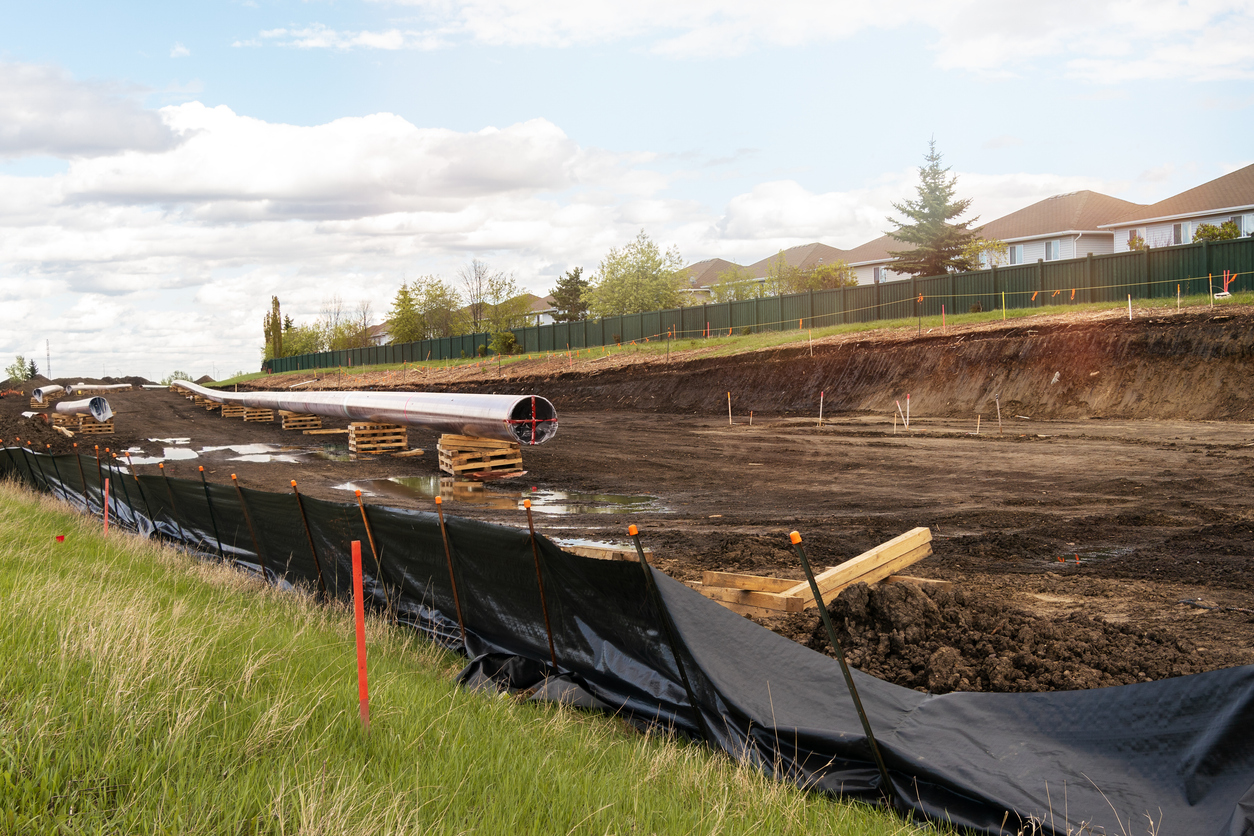Biden/McCarthy compromise would approve Mountain Valley Pipeline and limit national environmental reviews

Legislation backed by President Biden and House Speaker Kevin McCarthy would raise the limit on federal borrowing in exchange for approving a hotly-contested natural gas pipeline and limiting environmental reviews of major U.S. energy projects.
To avoid the possibility of the U.S. defaulting on its debts next week, Biden and McCarthy on Sunday endorsed compromise legislation that requires the federal government to issue all permits needed to “expedite” completion of the Mountain Valley Pipeline. The project is a 303-mile natural gas pipeline through West Virginia and Virginia that has been stalled by court challenges and is championed by Senate Energy and Natural Resources Chair Joe Manchin (D-W.Va.)
“I think it’s a really important step forward and it takes the threat of catastrophic default off the table,” President Biden said of the legislation. “It protects our hard-earned and historic economic recovery.”
Appalachian Voices and the Center for Biological Diversity are among several environmental groups strongly urging Congress not to approve the compromise bill.
“Changes to environmental laws and favors to fossil fuel companies have no place in a bill to raise the debt ceiling,” said Chelsea Barnes, director of government affairs and strategy for Appalachian Voices. “Congress should reject this legislation and pass a clean debt ceiling bill.”
Jean Su, energy justice program director at the Center for Biological Diversity, said: “President Biden made a colossal error in negotiating a deal that sacrifices the climate and working families. Biden has allowed Sen. Manchin and Republicans to hold the government hostage to ram through the climate-killing Mountain Valley Pipeline, dramatically roll back bedrock environmental laws that give voice to frontline communities, and sabotage agencies whose job is to protect the environment and working families. Congress should reject these poison pills and pass a clean debt ceiling bill.”
In addition to mandating the approval of the Mountain Valley Pipeline, the Biden/McCarthy bill would also speed up and limit federal reviews of major projects like pipelines, dams, and electric transmission lines across the U.S. under the National Environmental Policy Act (NEPA). That landmark 1969 law would be amended to require that the federal government complete most environmental impact statements on proposed projects within two years and limit most to no more than 150 pages.
The legislation would also exempt development projects from review under NEPA “unless the federal government has ‘substantial’ control and responsibility” over them, which could mean smaller projects with mostly state permitting review could be exempt.

The fate of proposed legislation is uncertain in the House and Senate. Some Democrats, including Senator Tim Kaine of Virginia, and environmental groups strongly oppose a pipeline project that would contribute to climate pollution and cut through hundreds of farms and streams and the Jefferson National Forest in Virginia.
Senator Kaine’s office said Monday he would file an amendment to remove federal permits for the Mountain Valley Pipeline project from the debt ceiling bill, calling the provision “completely unrelated to the debt ceiling matter.”
Some conservative House Republicans oppose the debt ceiling compromise because it fails to cut federal spending enough, and a few threatened to kick McCarthy out of his job. “Not one Republican should vote for this deal – not one,” said Republican Texas Rep. Chip Roy, a member of the Freedom Caucus. "No matter what happens, there is going to be a reckoning."
On the other side of the debate, Senator Manchin praised the deal on Sunday: “I am pleased Speaker McCarthy and his leadership team see the tremendous value in completing the (Mountain Valley Pipeline) to increase domestic energy production and drive down costs across America and especially in West Virginia. I am proud to have fought for this critical project.”
Manchin pushed for the project’s approval as part of a deal he cut with Senate Democratic leaders and President Biden for Manchin’s vote in favor of Biden’s Inflation Reduction Act on Aug. 16, 2022.
The Mountain Valley Pipeline was first approved in 2017 and has received two construction extensions. It has been challenged by numerous lawsuits and court decisions and is the subject of 139 state stormwater permit violations and dozens of state water quality standards violations.
The $6.6 billion project would transport over two billion cubic feet of natural gas annually, produced by hydraulic fracturing in West Virginia and Pennsylvania, to markets in eastern Virginia and along the Atlantic Coast.
The path of the pipeline crosses streams and rivers in 1,146 places across three states and would disrupt almost 28 acres of wetlands during construction, destroying almost nine acres permanently, according to an examination of public records by Oil & Gas Watch.
The text of the debt ceiling bill proclaims that “the timely construction and completion of the Mountain Valley Pipeline is required in the national interest…The Mountain Valley Pipeline will serve demonstrated natural gas demand in the Northeast, Mid-Atlantic and Southeast regions… and the availability of natural gas at reasonable prices.”
The bill requires, within 21 days, that the Army Corps of Engineers and other federal agencies approve all needed permits for the project. The legislation says that “no court shall have jurisdiction to review any action taken by” the Army Corps or any other federal agency in fast-tracking the project.
“This agreement is far from a compromise. It’s a surrender to Big Oil and Republican hostage-takers in Congress,” said Ariel Moger, government and political affairs director at Friends of the Earth. “Democrats should vote NO on this disgraceful deal and force a vote on a clean debt limit increase.”
Proponents of the Mountain Valley Pipeline had already received good news earlier this month. Both the U.S. Forest Service and the Bureau of Land Management in May approved the pipeline’s traversal of 3.5 miles of Jefferson National Forest, a critical component of completing what remains of the pipeline.
However, a decision on an Army Corps of Engineers water permit remains outstanding with no clear date of approval in sight. In 2022, landowners and environmental groups, including the Sierra Club, sued pipeline developer Equitrans Midstream Corp. saying the West Virginia Department of Environmental Protection ignored Equitrans' history of violating state water regulations when it issued the permit under the Clean Water Act.

In April, the 4th U.S. Circuit Court of Appeals ruled that two years of West Virginia state water regulation violations had been ignored in the approval process. The court mandated that the developer needed to get the state to reissue the permit before the Corps could proceed with its permit.
The developer has said the pipeline is 94 percent complete, although that figure is disputed by opponents who deem it misleading and not inclusive of the full scope of the work that remains to be undertaken.
Autumn Crowe, with the West Virginia Rivers Coalition, said even with the recent approvals the Mountain Valley Pipeline isn’t close to complete. What’s certain is that the bulk of the unfinished portions of the pipeline either cross waterbodies such as rivers or streams or pass through Jefferson National Forest in Virginia.
“Over 1,000 water bodies have to be crossed to complete this pipeline,” said Crowe in an online discussion. “Over 400 remain. The most sensitive water bodies on the steepest slopes still have not had pipe laid on them.”
Crowe said members of her coalition have already witnessed erosion controls failing along the pipeline’s path during construction.
“When you remove all the trees from the hillside and construct the pipeline on a steep slope, erosion controls will be ineffective,” Crowe said. “We saw this—we witnessed massive amounts of sediment entering rivers and streams.”
Crowe warned not only about the pipeline’s water quality impacts but also its climate ramifications.
“The Mountain Valley Pipeline locks us into increased emissions. It’s not just a problem for West Virginia, or for Appalachia, but a problem for the whole world,” Crowe said. “This pipeline increases emissions of methane, which is a more potent greenhouse gas than carbon dioxide.”















